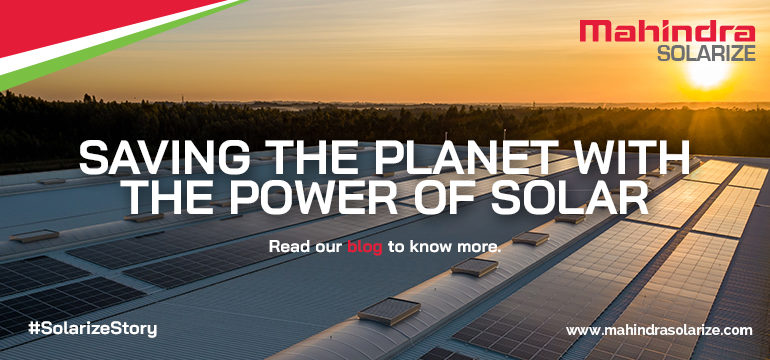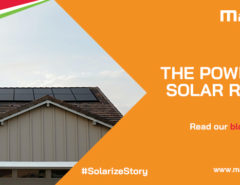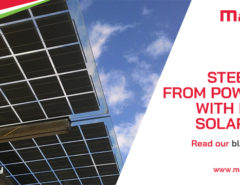Solar energy is all about harnessing the goodness of the sun’s energy to power modern civilization on Earth. Solar energy has the potential to contribute positively towards almost everything that requires power to function. Today we have the technology to ably capture and utilize direct sunlight to power homes, factories, charging stations, fuel pumps and the like. The advantages of switching to solar from conventional mediums of energy are nothing but beneficial to the planet and humankind. Solar energy is a renewable (clean) resource. While technology plays a crucial role in fast tracking this concept, the good news is that world leaders, governments and large companies are actively working towards this vision.
The need of the hour
Solar Photovoltaic Systems. What’s that, you ask? They are systems which use panels/modules that capture the sun’s energy and convert them into electricity. These panels are advanced enough to even work on cloudy days, not always depending on direct sunlight to function efficiently. Solar energy has many applications, big and small. It can be used to heat water, heat up pools, light up the outdoors, power up electric cars, power telecommunication equipment, generate electricity in houses and even power satellite and space stations. In fact, satellite and space stations are completely dependent on solar energy to keep them running, (there’s no other form of energy available in space, remember?). It is also the answer to slowing down global warming.
Benefits of Solar Power Systems
The benefits are too many to list. But first here’s a crash course into how solar panels function: Solar panels are made up of diminutive solar cells that use light to enable the movement of electrons. The layers of these solar cells have electrons which jump from one later to the other, when electrons are taken away. When the sunlight hits the electrons, they jump from one layer to the other producing a flow of electricity.
Now, back to the benefits.
- Clean, natural, healthy: Solar being natural, clean energy plays a crucial role in cutting down carbon footprint. Solar panels use a natural source (sunlight) to produce energy which is why the output is considered as eco-friendly electricity. There is an increase in the number of home owners who are turning to solar panels to go green! Solar panels don’t emit any gasses or harmful chemicals (as fossil-fueled electricity does). The result is a drastic improvement in the air quality around & healthier plants and animal life.
- It’s free, almost: You’re not paying for the electricity, only the initial cost of buying and installing the solar panels and voila! You can enjoy free electricity and warm water throughout the day! No more worrying about rising electricity bills, leaving the fan on or using hot water to wash utensils or rinse clothes. Solar panels will function irrespective of power breakdown ( only for offgrid) (it’s not dependent on electricity supply, remember?). Come summer or winter, you’ll have your schedule uninterrupted!
- Long term affair: Solar panels are built to last with the least amount of maintenance. The durable materials make them weather proof and they can easily last for three decades, if not more, with minimal servicing. Plus, they’re aesthetically pleasing as solar panels don’t make any noise, in case you were wondering.
- Affordability: A lot of Indian states offer tax rebates upon the installation of solar panels in homes, so that’s you’re first advantage. Solar panels generally range in the bracket of Rs 75,000 (plus installation charges) and upwards but as you know by now, it’s pretty much a one-time investment. Many banks offer loan services to take the load off the buyer. Do a little research before buying the solar panel as a good company is likely to offer you a maintenance plan that will cover repairs and insurance.
We hope the above read has convinced to take the leap of faith and do your bit to save the planet, one step at a time.




